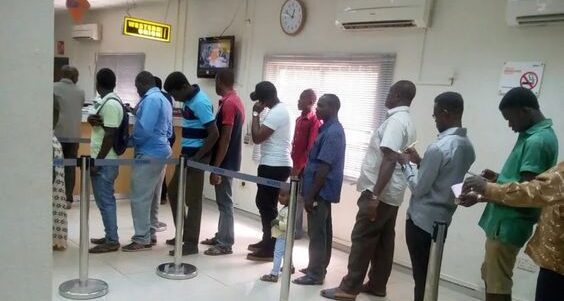Business
CBN issues fresh instructions to banks

Banks have been instructed by the Central Bank of Nigeria (CBN) to improve the calibre of their offerings in order to get more customers into the financial sector.
When the results of the 2023 EFInA Access to Finance (A2F) Survey were announced in Lagos, CBN Governor Olayemi Cardoso made this revelation.
He declared: “We need to be deliberate in our approach and step up our efforts as an ecosystem to create creative ways to support inclusivity.
Read Also: CBN puts hold on new intervention loans application
For example, those who are currently excluded may not find the same access points useful as those that are beneficial for included populations. To ensure that the goods and services we have created to this point are appropriate for the upcoming stage of our journey, they will need to be improved.
He claims that the Nigerian financial system has significantly improved in both breadth and depth, particularly in the areas of products, instruments, and payment infrastructure. This emphasises the necessity for us as stakeholders and regulators to continuously keep up with these new developments in a sustainable way.
Cardoso, who was accompanied by Chibuike Nwagerue, CBN Director, Other Financial Institutions Supervision Department, praised the efforts and advancements made by all parties involved in financial inclusion.
“But we all need to go from cooperation to real commitment if we want to reach the goal of 95% financial inclusion. As a result, I urge all Financial Inclusion Implementation Agencies to establish distinct departments or divisions within their various organisations that are solely focused on promoting financial inclusion. In our opinion, this will give the requisite ownership and dedication to meet our group’s objective,” he stated.
Cardoso stated that financial inclusion is an important global endeavour and a major developmental goal that is acknowledged by many nations across the world during her speech on the topic of “Building a More Inclusive and Sustainable Economy: The Role of Financial Inclusion.”
More than 68 nations have created and are presently executing National Financial Inclusion Strategies as evidence of the significance of financial inclusion to national growth. Fundamentally, financial inclusion offers a means of distributing financial resources fairly in order to promote economic progress. Additionally, it advances the monetary policy and price stability objectives of the Central Bank. For improved monetary policy transmission and the achievement of its goals, he said, an inclusive financial system that permits everyone access to a broad variety of formal financial services is crucial. According to the survey, the region of Northern Nigeria has the least amount of access to financial services.
According to the research, Northern Nigeria continues to have the highest rates of exclusion from financial services (38% in the North East and 47% in the North West) compared to 5% in the South West and 12% in the South South.
The A2F survey, which is intended to evaluate adult (18+) Nigerians’ access to and usage of financial services, is the country’s main source of statistics on financial inclusion. The survey methodology for 2023 has been revised to account for evolving demographic dynamics. The data from 2018 and 2020 have also been updated through the same approach to facilitate comparisons.
The Nigeria Financial Inclusion Strategy (NFIS 3.0) proposed objective to lower levels of financial exclusion in Nigeria to 25% by 2024 is clearly being met as seen by the 2023 findings, which reveal that 26% of Nigerians are financially excluded, down from 32% in 2020.
According to the research, there is still a need to prioritise the impact and quality of inclusion, as seen by the limited use of broader financial services. The percentages of credit and insurance use remained considerably below the 2024 target levels, at 3% and 8%, respectively, despite the credit use having doubled to 6%.
Dr. Agnes Martins, Chair of EFiNA, commented on the survey results, saying: “We are seeing encouraging progress towards the recommended goal of NFIS 3.0 to reduce exclusion to 25% by 2024, and we must acknowledge all the good work that has gone into making this happen.” It is imperative to acknowledge, nevertheless, that the 26% exclusion rate still leaves 28.8 million adult Nigerians wholly shut out of the financial system.
